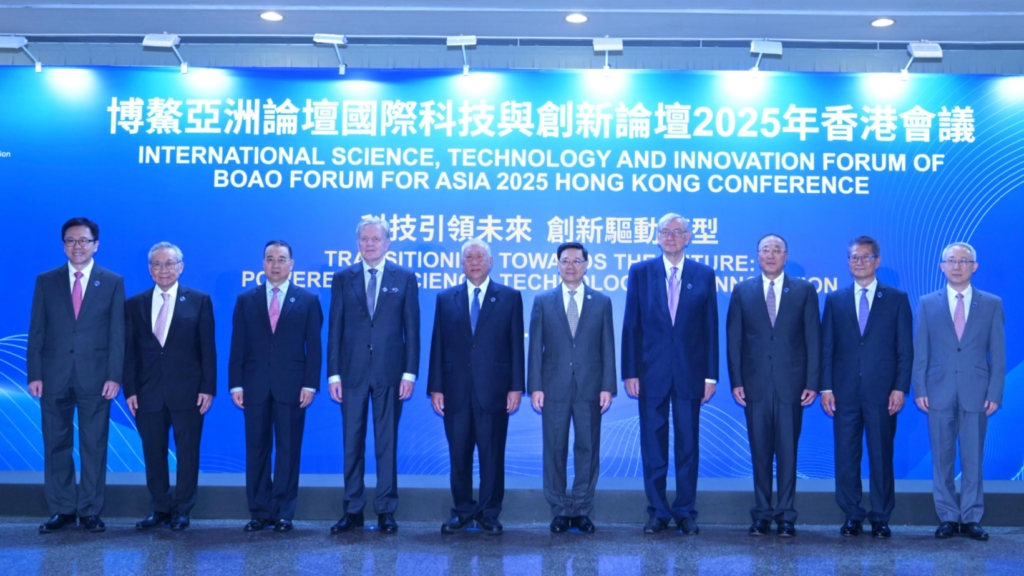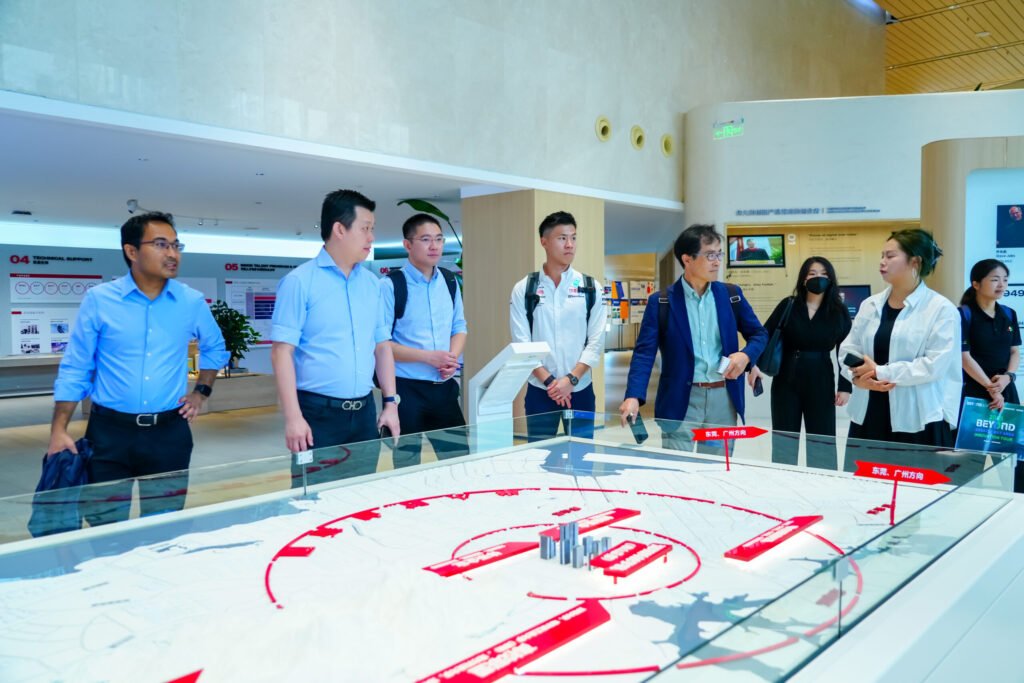KINGSTON, R.I. – June 6, 2025 – Growing up in York, Maine, Derek Murphy ’20 was fascinated with the idea of living and working overseas, maybe for a global organization like the World Bank or the United Nations.
“International affairs and trends have a direct impact on our lives, often in ways we don’t realize,” explains Murphy, who graduated from the University of Rhode Island with majors in political science and Chinese and was a member of the Honors Program. “Learning firsthand the ways that different countries operate and function, and the diversity of cultures out there, have made me a more well-rounded person, and help me to better understand the world around me.”
As a member of the foreign service with the U.S. State Department, Murphy is realizing that goal. Stationed in Guangzhou, China, he’s a vice consul in the U.S. Consulate in the large, bustling city that has grown very familiar over the last two years. His duties include helping American citizens visiting China and working with Chinese citizens planning to visit or emigrate to the United States.
“I love the exciting and international nature of the work,” says Murphy. “I’ve had a chance to work on visits from U.S. Cabinet officials and fascinating issues, while living overseas and working in public service. It’s an exciting job.”
His career, he says, would never have gotten started had it not been for URI’s Chinese Language Flagship Program. The four- to five-year program combines intensive instruction in Mandarin Chinese and cultural competency with two eight-week, summer immersion sessions and a year-long capstone study abroad program to prepare students to reach professional fluency in Mandarin.
“I have had many times in my life where I have gotten opportunities or gotten in the room because of my linguistic background,” Murphy says. “Flagship gave me that linguistic, cultural and professional foundation that I could build off of and turn into a career.”
In its 15th year, the URI Flagship Program, one of eight such programs in the nation, graduates about 15 students a year. The program is sponsored by the Language Flagship, a national initiative funded by the National Security Education Program, which aims to increase the number of U.S. citizens with a superior command of languages deemed critical to U.S. interests. Similar to URI’s prestigious international engineering and business programs, students graduate with degrees in a language and a second major.

The program’s goal is to help undergraduate students take their place as the next generation of global professionals, with superior proficiency in Chinese to solve global issues in areas such as engineering, international studies and diplomacy, business, cybersecurity, and environmental sciences, says Dr. Yu (Joyce) Wu, director of URI’s Flagship Program.
“Chinese may seem difficult to learn, with a logographic writing system and its linguistic distance from the English language,” says Wu, who’s been with the URI program since 2016. “But our instructional team is equipped with the latest language acquisition pedagogy, and has been successfully preparing students to achieve professional proficiency in Chinese over the past decade.”
Making that even more amazing: About 95 percent of the students in the Chinese Flagship Program come in with little or no knowledge of the language.
“It’s so rewarding to see how fast students progress,” says Wu.
Murphy was one of those students, a total beginner, who could just say hello – “Ni Hao” – in Chinese when he started. In high school, he wasn’t sure what he wanted to study in college. But he had studied French for years and knew he liked learning languages, and he had a desire to see the world. The Flagship Program, he says, was the perfect chance to do both.
“For students who are willing to put in the work, the program gives you the opportunity to live and study abroad, and to reach an advanced skill level in a new and difficult language,” says Murphy. “Chinese is by no means an easy language for native English speakers.”
Murphy says the program is an “ideal incubator” for learning a new language. URI’s program—one of the largest in the country in enrollment and students sent overseas for its capstone program—boasts small class sizes, a close-knit community of about 70 students and five professors, who have won awards in teaching and research. Along with intensive language instruction, the summer immersion sessions, where students pledge to speak only Mandarin, also included fun, cultural activities: such as playing games, learning Tai Chi, making meals from different Chinese regions, Murphy says.
By the time he reached his capstone year, Murphy was well prepared for his time in Nanjing, China. He lived with a local roommate, took intensive language classes and university courses alongside Chinese students, and took part in cultural activities. One of his favorite memories was volunteering at an elder-care facility where he helped teach residents Christmas songs in English while they taught his group popular Chinese songs.
“Flagship took a well-rounded approach to making sure the language learners would be not only linguistically, but culturally competent. The teachers are incredible resources, and work very hard to help you understand the complexities of Mandarin and the Chinese-speaking world,” he says.
After graduating from URI in 2020, Murphy did a year with AmeriCorps’ National Civilian Community Corp program, before moving to Taiwan to take more intensive Mandarin courses on a Huayu Enrichment Scholarship. He joined the U.S. State Department full-time in 2023.
While living in Guangzhou, about an hour from Hong Kong by high-speed train, Murphy has found time to sightsee as much as possible. During those trips, he has visited such places as the western province of Qinghai, where he met monks in an isolated Tibetan monastery; the massive ancient statues of deities at the Buddhist cave grottos of Datong; and the Yellow Mountains of Anhui. Closer to home in Guangzhou, he’s enjoyed diving into the local culture. Usually when he learns something new about the city, he soon learns that it’s a tradition dating back thousands of years, he says.
“China is a vast and exciting place to live,” he says. “It is a country that is constantly changing and reinventing itself. It is fascinating to see the scale of change from the last few decades every time I walk out my door. Yet despite the massive shifts China has undergone in recent years, it is a country steeped in a traditional culture that offers so much depth.”
Last November, Murphy met up with Professor Wu while she was attending a conference in Hong Kong. While they sat for dim sum—a Cantonese style of Chinese breakfast—she saw how at home he had become in his surroundings, ordering and paying in Chinese, and giving her a tour of the neighborhood.
“Derek is amazing. I grew up in China, but he’s more native than me now,” says Wu. “He is a true representation of a global citizen who takes on the challenge of making an impact on the world through a bilingual lens. It’s amazing to see his journey and how far he’s come, now representing the U.S. on the global stage. But really, the Chinese Flagship Program has opened so many career opportunities for our students, and we are so proud to see how much they have grown personally, professionally, and interculturally.”








